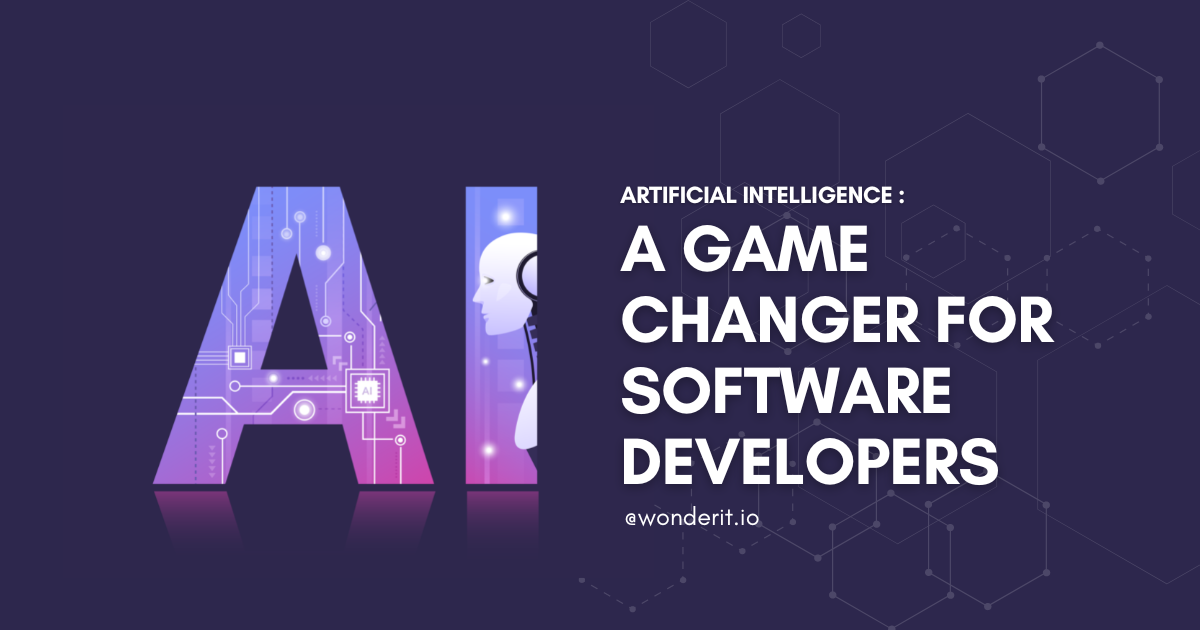Artificial intelligence is having an impact on every industry in the modern world. The field of software development has been transformed by AI. AI is having a significant impact at every level of software development and deployment to identify a fresh paradigm for software innovation. You can think of artificial intelligence as a tool for gathering information, behaving human, and utilizing machine learning to adapt to new contexts.
What effects is AI having on us? In a nutshell, we may argue that AI simplifies our lives by relieving us of difficult duties. In other words, we might say that we don’t need to wait for a better tomorrow because AI can help us predict a better future. Most of the time, we are unaware of how AI affects every aspect of our lives; nonetheless, it has become an indispensable component of daily existence. The best mobile app development companies are creating an increasing number of AI-based apps, which has allowed the software development sector to advance.
Five Benefits of Artificial Intelligence In Software Development
1. Making Bugs And Error Identification Easier
Without AI tools, it’s difficult to detect bugs and errors quickly, and you have to read through every line of code to figure out where the issue is. Every software developer dreads this tedious, time-consuming process.
By quickly identifying and fixing faults and errors, artificial intelligence promotes advances in coding. By starting an automated diagnosis that swiftly discovers issues and fixes them, artificial intelligence helps developers skip the mentally taxing task of examining executable files.
To enhance testing outcomes and deliver high-quality output, developers also include machine learning algorithms into the process.
2. AI Helps You In Strategic Decision Making
The decision-making process for choosing specific product features presents a challenge for the developers. They frequently don’t know what to leave out or add to specific program to have a bigger impact.
By examining previous software development projects and making adjustments to the current software in light of the findings, machine learning AI addresses these oscillation issues.
3. AI Provides You With An Accurate Estimate
To effectively estimate software development in terms of time, cost, and labor, a developer needs to use meticulous planning. Even with high levels of experience, you run the danger of misjudging the estimations when estimating these things.
However, by examining previous data and projects as well as statistical similarities, AI provides the greatest way to eliminate such uncertainty. Through predictive analytics, artificial intelligence provides precise project estimates that streamline your work.
4. Strengthen Data Security
Since data security is an important component of software development, a developer cannot ignore it. The procedure involves the collection and transfer of data from numerous software and network sensors, making it difficult for cybersecurity professionals to look into every action.
Unnoticed cracks can put the software at higher danger and render it worthless. In order to avoid alerts, warnings, and misleading notifications, software development businesses utilize AI that aids in the investigation of abnormalities using machine learning.
3 Types Of Artificial Intelligence
1. Reactive Machines
The most fundamental artificial intelligence principles are followed by a reactive computer, which, as its name suggests, can only use its intellect to see and respond to the environment in front of it. Because a reactive machine lacks memory, it is unable to use previous experiences to guide current decisions. Reactive machines can only perform a small number of highly specialized tasks because they are only capable of experiencing the world immediately. However, intentionally limiting the scope of a reactive machine’s worldview means that this kind of AI will be more dependable and trustworthy – it will respond consistently to the same stimuli.
The chess-playing supercomputer Deep Blue, which was created by IBM in the 1990s and defeated Gary Kasparov in a game, is a well-known example of a reactive machine. Deep Blue was only able to recognize the chess pieces on a board, know how each moves according to the game’s rules, acknowledge each piece’s current position, and decide what would be the most logical move at that precise moment.
2. Self-Awareness
The final stage of AI development will be for it to become self-aware after theory of mind has been created, which will likely take a very long time. This sort of artificial intelligence is conscious on a par with humans and is aware of both its own presence and the presence and emotional states of others. It would be able to comprehend what other people could need based on both what they say to them and how they say it.
AI self-awareness depends on human researchers being able to comprehend the basis of consciousness and then figure out how to reproduce it in machines.
3. Limited Memory
When gathering information and assessing options, limited memory AI has the capacity to store earlier facts and forecasts, effectively looking back in time for hints on what might happen next. Reactive machines lack the complexity and potential that limited memory AI offers.
restricted memory An artificial intelligence environment is developed so that models can be automatically taught and refreshed, or AI is created when a team continuously teaches a model in how to understand and use new data.
The following six actions must be taken when using ML with restricted memory AI: The ML model must be developed, be able to generate predictions, be able to accept feedback from humans or the environment, be able to store that feedback as data, and all of these stages must be repeated in a cycle.
Bottom Line
AI has the ability to enhance and augment human capabilities, but it is crucial to use it ethically and responsibly to maximize its benefits and minimize its drawbacks. For more information contact WonderIt.


Recent Comments